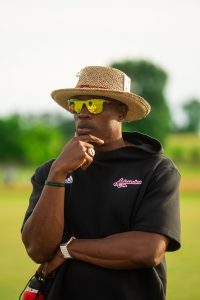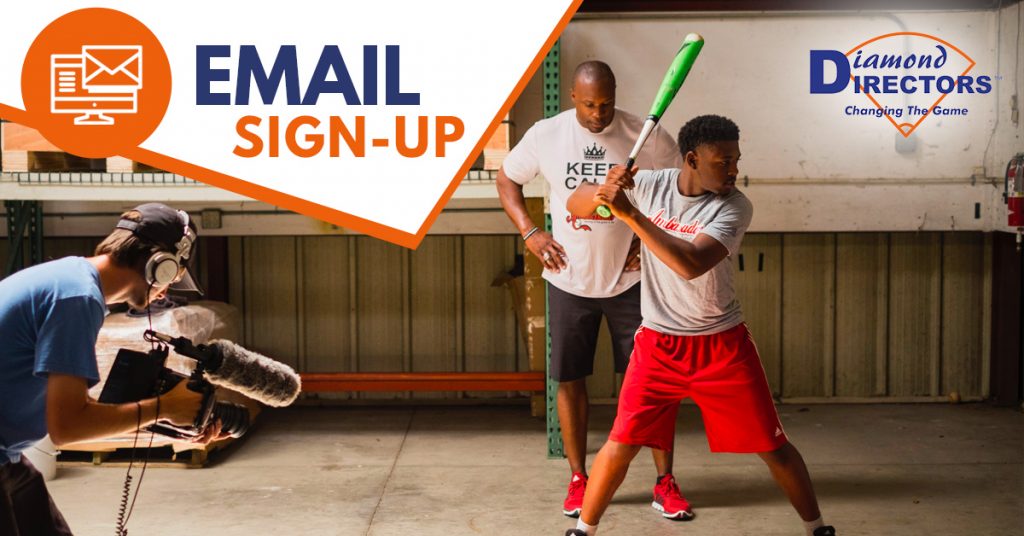
May, June, and July. It’s The Show. The Application Phase. The time of year when hitters across the country lace up, step in and try to prove they’re built for the big stage.
This is the part of my four-phase development process when all the work that’s been done—or skipped—starts to show.
But what comes before the show?
The Lab.
August, September and October is what I call the Assessment Phase—the lab. It’s when we experiment, test, tweak, break, build and discover. It’s where true player development begins. But development doesn’t just mean grinding until something sticks. It means intentional, informed growth. And that requires scouting.
Let me be clear: Scouting isn’t a dirty word. It’s just a real one.
We all say we want to grow. We want to be great. We want to compete on the biggest stages and make an impact. But a lot of players—and parents—try to skip the step that actually fuels all of that: getting assessed.
See, development (as I define it) is the deliberate effort to value and empower learners to obtain personal mastery and excellence through nurturing training. But you cannot nurture what you don’t know. That’s why scouting matters. Scouting is just an honest look in the mirror—professionally, objectively and unapologetically.
Here’s the ridiculousness I see all too often: players want to be great, but they don’t want to hear “no.” They’d rather play 100 games hoping to get discovered than sit down with a credible scout who could give them the real information about what’s working—and what’s not. That’s like wanting to become a better speaker but never asking for feedback because you don’t want someone to say your voice shakes.
Let me tell you a quick story. A few years back, I had a young hitter in our program. Talented. Smooth. Hit bombs in BP, had the swagger, played lots of tournaments. But he never wanted to be assessed. When we’d offer scouting reports, skill breakdowns or swing analysis, he’d politely duck out.
One day I asked him why. His answer?
“Because I don’t want to hear that I’m not ready yet.”
I told him: “If you’re not ready, you’re not ready. But that’s not the problem. The problem is not being willing to hear it and work on it.”
Feedback isn’t failure. It’s a flashlight.
And that’s the point. There are players right now playing hundreds of games this summer with no clear destination, no clarity on their strengths and no urgency to fix their weaknesses—because they don’t want a scouting report. No scouting report, no real direction. No direction, no true development. No development, no next level.
If you’re a high school player wanting to play in college, go get your scouting report. Then take that report and visit one, two, or three of your top college programs. Show up on campus. Put yourself in front of the coach. Let them say “yes,” “no,” or “not right now.”
That “not right now” could be the best thing you’ve ever heard—because it can come with specific feedback you can act on.
Same goes for professional hopefuls. Invest in yourself. Pay for a showcase run by a certified MLB scout. Get the truth. You’re not buying a dream—you’re buying clarity.
I practice what I preach. As the co-founder of the LEAD Center for Youth, we’re currently a $2 million sports-based youth development organization aiming to grow into a $10 million force by our 25th anniversary in 2032. We’re in the middle of strategic planning right now.
And yes, we’re doing a SWOT analysis—strengths, weaknesses, opportunities, threats.
You know what I’m most proud of? Not the strengths I can list. I’m proud that I can name more weaknesses—and own them. Why? Because I’ve been assessed. I’ve had 360-degree feedback. I’ve been coached. And because of that, I can grow. I can develop. I can lead with humility and confidence.
If you want to go to the next level, you need to be scouted.
If you cannot stomach the idea of being told “not yet,” you’re not ready for the grind it takes to get to “yes.” Scouting isn’t just for college coaches and pro scouts—it’s for you. It’s your mirror, your baseline, your blueprint.
This summer, as you take the field, ask yourself: Have I been scouted? If the answer is no, I’d question whether you’re truly serious about going to the next level.
Because at some point, your talent will need receipts. And those receipts start in the lab.
It’s Showtime. But it starts in the Lab.
Are you ready?
Remember: Intelligence tops being smart.
For more information, visit www.diamonddirectors.com today.
If you found this inspiring and thought-provoking, or if you have any questions, comments or concerns, add me on Discord and let’s go deeper.
C.J. Stewart has built a reputation as one of the leading professional hitting instructors in the country. He is a former professional baseball player in the Chicago Cubs organization and has also served as an associate scout for the Cincinnati Reds. As founder and CEO of Diamond Directors Player Development, C.J. has more than 22 years of player development experience and has built an impressive list of clients, including some of the top young prospects in baseball today. If your desire is to change your game for the better, C.J. Stewart has a proven system of development and a track record of success that can work for you.

Leave a Reply